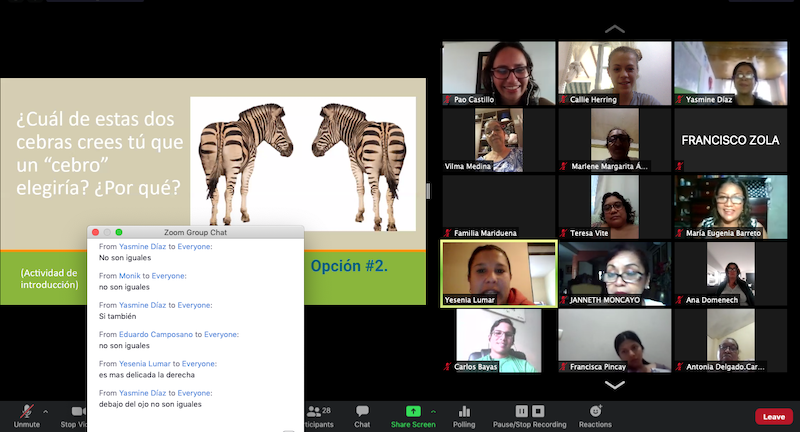
04 May Teaching in a Pandemic
The COVID-19 crisis has closed schools for 1.3 billion students around the world. Teachers are trying valiantly to make sure their students continue learning, but in vulnerable communities they face immense and numerous barriers. One of our partner schools, located in a high-needs neighborhood of Quito, Ecuador, is working with us to devise strategies to overcome these obstacles.
Partners in Love and Hope
The school is aptly named Amor y Esperanza, because love and hope infuse everything it does. Started as a kindergarten, it has grown into a school for all grade levels. The leadership recently raised enough money to construct a new building that will allow the student population to expand from 250 to 700.
T2TGlobal has partnered with the Amor y Esperanza since March 2014. Founder Chadd McGlone was invited to Quito to listen to the teachers’ dreams for their students and for their own professional development. Since then, teams of math education experts have returned to the school more than ten times to make those dreams a reality.

Amor y Esperanza students are enthusiastic about learning.
As in schools everywhere, Amor y Esperanza classrooms are now silent. Shifting to virtual education has not been seamless, because many students lack internet access at home. In fact, the ones who live close to the school are climbing onto their roofs to try to access a wifi signal.
Coming Up with Solutions
T2TGlobal staff have come alongside the Amor y Esperanza teachers to enact solutions. Our partnership has three prongs:
- Listen to their concerns. In addition to gathering needs from brief surveys, we start all sessions by asking them how they would like to be supported. We want to know and understand the challenges teachers are facing before starting to collaborate. Some of the topics they have mentioned are using technology, how to introduce new content, and options for creating lessons around materials found in students’ homes.
- Provide group training. We hold group discussions in Zoom with teachers from all subjects (not just math), as well as school administrators. We use these meetings to work together on topics of common interest that create connections so they can support each other.
- Offer individual coaching. We match education experts from our network with teachers of all grade levels from elementary through high school. These mentorships give teachers the opportunity to resolve individual concerns and receive personalized feedback. Right now, eleven school teachers, primarily in STEM subjects, meet weekly with their mentors and follow up with our staff.
Responses from the 12 teachers after the first group workshop affirmed that we were on to something. Here’s an example:
I feel happy and confident because I received an orientation to new strategies that allow me to grow in my professional development.
The school’s directors chimed in with similar remarks,
The most important thing about the meeting was motivating teachers in these difficult and totally unexpected times. Teachers are ready to apply the strategies and knowledge taught yesterday. It is a great blessing to count on your support.
Joining Forces
This positive response led us to invite another partner school to a joint coaching session over Zoom. The Esperanza de Bastión school in Guayaquil, Ecuador, while on a different calendar, is also pivoting to distance learning. A total of 27 teachers attended the combined workshop focused on maintaining best practices.

Teachers share their mathematical reasoning. Which zebra is preferred by other zebras? Justifying answers builds critical thinking.
Follow-up surveys revealed that a key success was the opportunity to learn from other educators serving a vulnerable community. We’re planning more virtual sessions like these and will continue to offer them for as long as they’re helpful.
We know you’re aware of the negative impact of the coronavirus on students and teachers who have no choice but to try to adapt. We hope that you’re reassured by the knowledge that we’re working hard to keep evidence-based learning alive.
No Comments